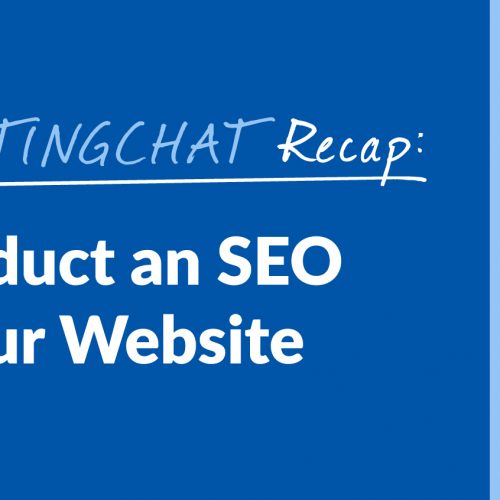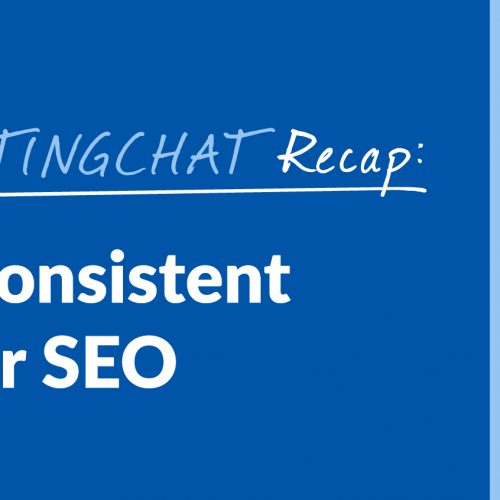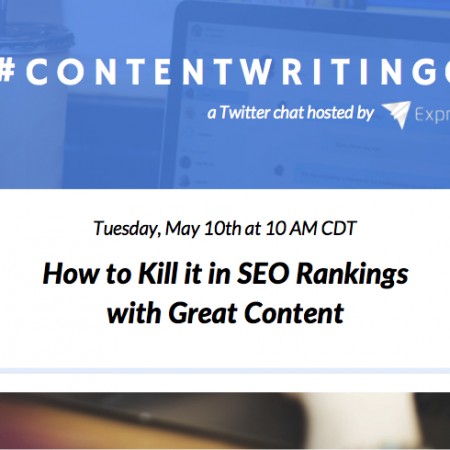5 Major SEO Content Trends to Expect in 2018
Search engine optimization is going to look waaaay different in 2018. It’s true. We’re forging into the future, and that means search has to change to keep up with technology and user habits/needs. But what do “they” (the Big G) want? And, where is technology going – and how does that tie in to the search algorithm? For starters, more people want to ask their virtual, voice-enabled home assistants questions – and get good answers. In addition, more people want to use the internet on their smartphone versus a desktop. Just look at the market share for mobile vs. desktop five years ago, and then compare it to today. In 2013, mobile was barely making a blip: But look at where those numbers fell in 2017: Mobile is now edging out desktop, and it’s not stopping anytime soon. That means big things for SEO. So, what’s going to (really) happen? Let’s dive into the biggest SEO trends for this year. We’ll conjure up a good idea of what it all means for your online presence. 5 Impactful Content & SEO Trends to Watch for in 2018 1. Mobile-First Indexing Is Happening In 2016, mobile surpassed desktop browsing as the most popular method. More and more people are turning to mobile for their browsing needs, whether they’re on-the-go or at home. Plus, 80% of people who use the internet also own smartphones. Google is working to accommodate this shift and will soon roll out their mobile-first index. This means that the search engine will prioritize mobile content in its rankings. “Soon” is a relative term, however. According to a Search Engine Land report, right now that means sometime in 2018, but it could get pushed back. Google has also promised not to spring the roll-out of mobile-first on unsuspecting site owners. Instead, they have pledged to be “proactive” about talking to webmasters as it happens. Gary Illyes even told people not to “freak out” at the SMX Advanced conference in June 2017. Bottom line: If you’re sitting pretty with a website that has a responsive design, you have no worries. If you still only have a desktop-friendly site, now is the time to make some upgrades. Here’s what that looks like across devices, via W3Schools: 2. Context Will Matter More Than Ever for Content If your content isn’t contextually relevant to the topic you’re writing about, forget it. Forget about ranking, let alone ranking well in 2018. As Google gets smarter, repeating keywords in your content matters less and less for SEO. Google is no longer a toddler in terms of tech. It’s now a wise-ass teenager who knows way more than you think. Hence, SEO for content going forward is all about context. It’s about relevance. It’s about diving deep into a topic and leading your readers far beneath the surface information. According to experts who contributed to SEMrush’s #semrushchat, content may be THE most important ranking factor today. Not just any content, though – “relevant, well-structured content”: Of course, this is nothing new. However, you can expect to see this continue to grow in importance in the months ahead. The need for high-quality content for outstanding SEO is going nowhere. 3. Voice Search Optimization Will (Continue to Be) a Big Deal Voice search technology is getting better all the time. And, as it gets better and easier to use, more people are flocking to nab their own virtual assistants like Alexa on Amazon devices, Siri on Apple devices, or Cortana on Microsoft devices. According to a recent study from eMarketer, the number of Americans using voice search jumped up by 128.9% from 2016 to 2017. By 2019, 39.3 million millennials are expected to adopt this technology and use voice search, according to the same study. It’s easy to see why voice search optimization will continue to grow in importance for SEO. It’s gotta keep up with the lightning-fast speed at which users are glomming onto voice-enabled technology. 4. Sites Will Be Jostling for Spots in Featured Snippets According to The Next Web, snippets are the new #1 position on Google. These snippets appear at the top of search results and give searchers instant answers. For instance, what if I need to know how far away the moon is from earth? Observe: Before I can even scroll to the number one search result from NASA, Google hands me the answer in the featured snippet. Needless to say, it’s prime real estate. Sites that manage to get featured don’t even have to rank #1 to be on top. Instead, Google pulls text from your content to provide the answer and links to your page – above the number one search result. Awesome, right? Plus, voice search results are mainly pulled from featured snippets. If you can get your content featured here, you could really go places. Because voice search is getting bigger, expect featured snippet spots to get pretty competitive, too. 5. Lazy Guest-Blogging = Not Cool with Google If you’re guest-blogging with no other intention than link-building, you’re doing it wrong – and Google will punish you. Google recently pointed out that this behavior is basically in violation of their guidelines. Specifically, it falls under the shady link schemes umbrella. Search Engine Land has speculated that this announcement signals a warning for webmasters. They say it’s likely that an algorithm update may be coming that targets “manipulative guest posting.” To avoid a hit on your rankings in 2018, review guest blogging mistakes to avoid and make sure you’re doing it for the right reasons: to provide value to users, and to help you grow your list with quality leads. The Main 2018 SEO Trend? Search Engines Are Getting Smarter I think you’ll see one overarching trend for 2018 and SEO: Search is getting smarter, better, and more intuitive. Of course, we can never stay static for long. We can’t get too comfortable. If we don’t change along with the changing times, we’ll get left behind. Look forward to these … Read more




